#louis bonaparte
Text



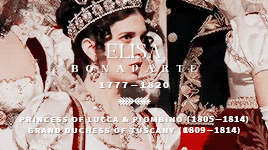




the bonaparte siblings (requested by anon)
"They were not worried about seeming out of place, they did not fear making mistakes or doing something silly; they had no concern for responsibilities; they had a self-confidence that was not even accompanied by a sense of the duties high position entailed. And this self-confidence sustained them despite everything, and so long as their luck held, it made easy for them things that to others seemed simply impossible. […] The audacity to attempt everything, the certainty of succeeding everywhere— in short, all the attributes of genius, except for genius." — Frédéric Masson
J O S E P H's close bond with the Emperor was often tested throughout their political careers, but never broken. He was without question his closest companion but proved to be more successful as a businessman before and after the Empire.
L U C I E N was never offered a crown or a throne, and broke off from the rest of the family as early as the 1800s. He frequently opposed his brothers' views and notably refused to divorce his wife in favor of a diplomatic alliance. Unlike his siblings, his title was bestowed by the Pope.
E L I S A, contrary to her sisters who primarily held consort roles or acted as strawmen, is believed to be the only Bonaparte sister, and only woman, with actual political powers bestowed by the Emperor. She's the only one of the adult siblings to die before him.
L O U I S' frequent conflicts with the Emperor led Napoléon to annex the Kingdom of Holland in 1810, driving him and his family into exile. Louis would go on to become the father of Napoléon III.
Despite a tumultuous relationship, P A U L I N E was considered Napoléon's favorite sister, and proved to be the most loyal of the imperial siblings, liquidating her assets and visiting him in Elba.
Often regarded as the most influential of the Bonaparte sisters, C A R O L I N E was constantly caught in-between her husband and her brother. She was instrumental in the divorce and remarriage of the Emperor. Her political legacy not only didn't survive the fall of the Empire, but effectively predated it through a series of conflicts with her brother.
J E R O M E was the last sibling standing by 1860, and out of them all was the only one to support the Emperor at Waterloo. He would also be the only one to see the re-creation of the Empire and his nephew on the throne.
#perioddramaedit#historyedit#mine#19th century#*#napoléon bonaparte#jérôme bonaparte#elisa bonaparte#pauline bonaparte#louis bonaparte#lucien bonaparte#caroline bonaparte#joseph bonaparte
287 notes
·
View notes
Text
Do you guys ever wonder why some people in the napoleonic fandom are popular, or even romanticized to the point of being barely recognizable, while others are not? Why some are branded villains, while the same or worse actions from others are somehow ignored or excused?
#been thinking about this#ever since the book on laure junot#but also true for others#marmont#bernadotte#marie louise#louis bonaparte
48 notes
·
View notes
Text


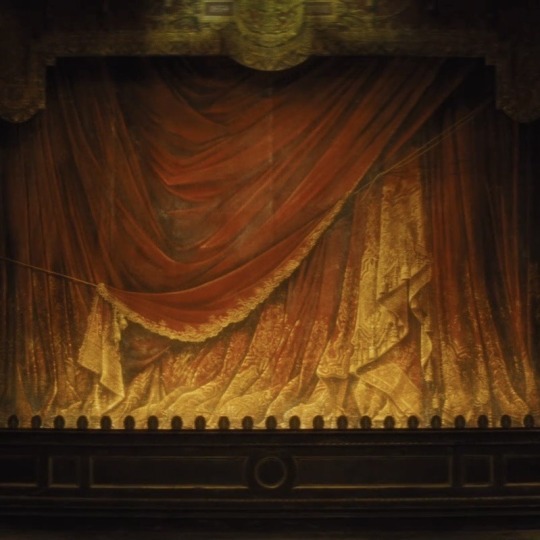


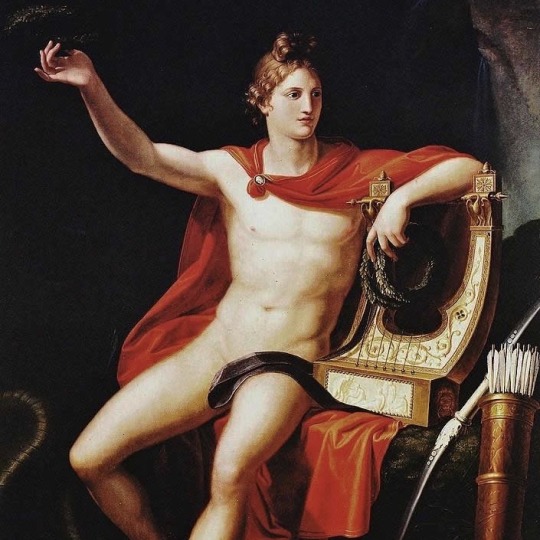
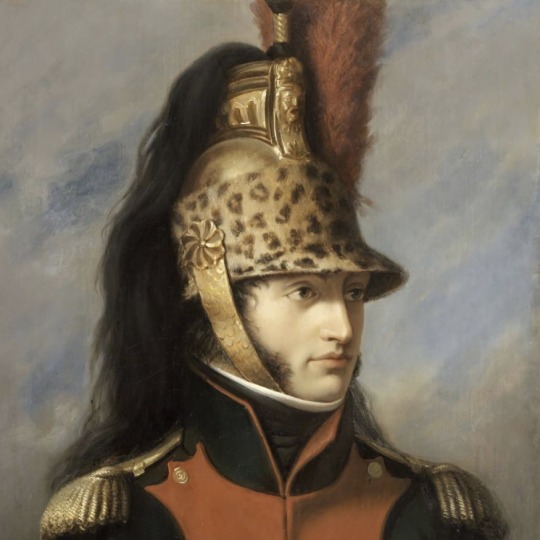


Napoleonic + red
#Napoleon#napoleon bonaparte#edit#red#red edit#paintings#napoleonic era#napoleonic#Louis Bonaparte#first french empire#french empire#19th century#french revolution#history#france#aesthetics#moodboard#mood board
57 notes
·
View notes
Text
EIGHT SURVIVING CHILDREN OF CARLO AND LETIZIA BONAPARTE, SIBLINGS OF NAPOLEON I 🥺🌟♥️

254 years ago on this day, Napoleon Bonaparte, the first French emperor was born
On the occasion of his birthday, meet the Eight surviving children of Carlo and Letizia Bonaparte, who lived to adulthood
Letizia Bonaparte gave birth to 13 children between 1768 and 1784; five of them died, two at birth and three in their infancy...😥🥀
Among the 13 children, the first child who died was Napoleone Buonaparte, who was born on August 17, 1765 and died on the same day... The last child to die was Jérôme Bonaparte, who died 95 years after his eldest brother...
The registered names of all the children of Carlo and Letizia Bonaparte:
• Napoleone Buonaparte (born and died 17 August 1765)
• Maria Anna Buonaparte (3 January 1767 – 1 January 1768)
• Joseph Bonaparte (7 January 1768 – 28 July 1844)
• Napoleon Bonaparte (Later French emperor) (15 August 1769 – 5 May 1821)
• Maria Anna Buonaparte (14 July 1771 – 23 November 1771)
• A stillborn child (1773)
• Lucien Bonaparte (21 March 1775 – 29 June 1840)
• Maria Anna (Elisa) Bonaparte (3 January 1777 – 7 August 1820)
• Louis Bonaparte (2 September 1778 – 25 July 1846)
• Pauline Bonaparte (20 October 1780 – 9 June 1825)
• Caroline Bonaparte (25 March 1782 – 18 May 1839)
• Jérôme Bonaparte (15 November 1784 – 24 June 1860)
#Carlo Buonaparte#Letizia Bonaparte#Joseph Bonaparte#Napoleon Bonaparte#Lucien Bonaparte#Elisa Bonaparte#Louis Bonaparte#Pauline Bonaparte#Caroline Bonaparte#Jérôme Bonaparte
64 notes
·
View notes
Text
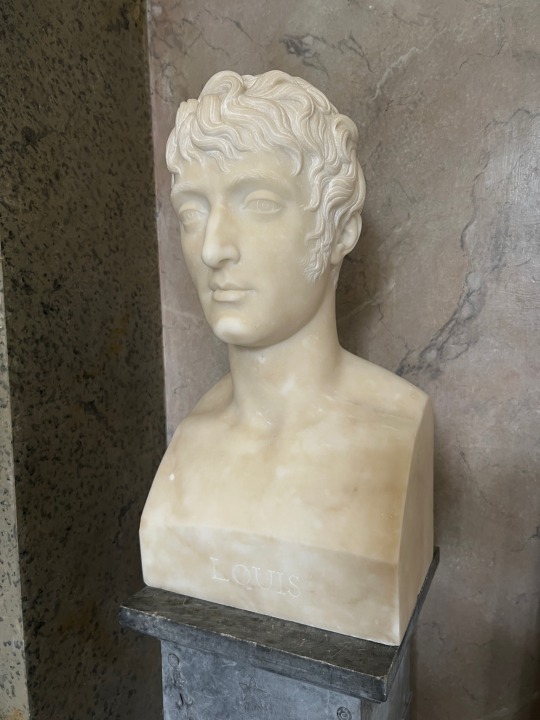
Bust of Louis Bonaparte, taken during my recent visit to Malmaison.
43 notes
·
View notes
Text
Happy birthday Louis Bonaparte! September 2, 1778

Brother of Napoleon, father of Napoleon III
18 notes
·
View notes
Text

Louis🌸
14 notes
·
View notes
Text
“Let the dead bury their dead, for thus only can it discover its own true meaning.”
— Karl Marx, The Eighteenth Brumaire of Louis Bonaparte
#Karl Marx#The Eighteenth Brumaire of Louis Bonaparte#Louis Bonaparte#Brumaire#18 brumaire#18th brumaire#18th brumaire of Louis Bonaparte#Marx#quotes#German literature#literature#1800s
2 notes
·
View notes
Photo
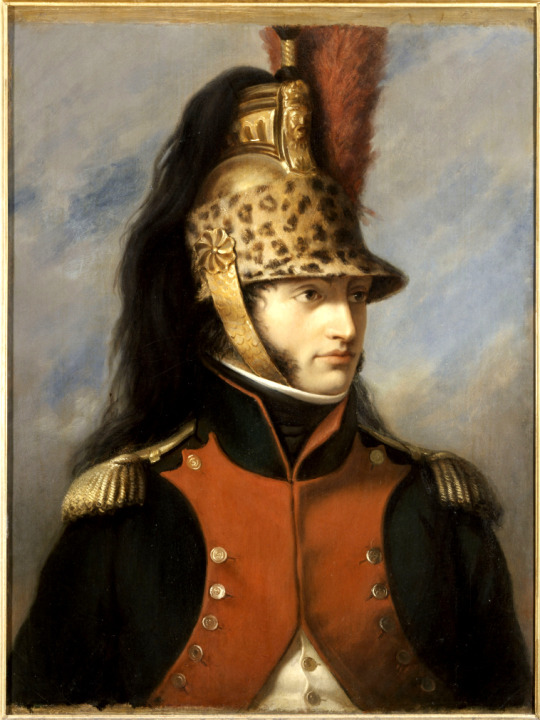
Louis-Bonaparte (1778-1846) in the uniform of the colonel of the 5th regiment of dragoons. By Charles François Jalabert.
#Charles François Jalabert#charles jalabert#louis bonaparte#maison bonaparte#dynastie bonaparte#bonaparte#buonaparte#french empire#empire français
13 notes
·
View notes
Photo

Happy Birthday to LOUIS BONAPARTE (2 Sept)
Thanks @joachimnapoleon for putting it out there.
13 notes
·
View notes
Text
Whether it was a question of the right of petition or the tax on wine, freedom of the press or free trade, the clubs or the municipal charter, protection of personal liberty or regulation of the state budget, the watchword constantly recurs, the theme remains always the same, the verdict is ever ready and invariably reads: “Socialism!” Even bourgeois liberalism is declared socialistic, bourgeois enlightenment socialistic, bourgeois financial reform socialistic. It was socialistic to build a railway where a canal already existed, and it was socialistic to defend oneself with a cane when one was attacked with a rapier.
This was not merely a figure of speech, fashion, or party tactics. The bourgeoisie had a true insight into the fact that all the weapons it had forged against feudalism turned their points against itself, that all the means of education it had produced rebelled against its own civilization, that all the gods it had created had fallen away from it. It understood that all the so-called bourgeois liberties and organs of progress attacked and menaced its class rule at its social foundation and its political summit simultaneously, and had therefore become “socialistic.” In this menace and this attack it rightly discerned the secret of socialism, whose import and tendency it judges more correctly than so-called socialism knows how to judge itself; the latter can, accordingly, not comprehend why the bourgeoisie callously hardens its heart against it, whether it sentimentally bewails the sufferings of mankind, or in Christian spirit prophesies the millennium and universal brotherly love, or in humanistic style twaddles about mind, education, and freedom, or in doctrinaire fashion invents a system for the conciliation and welfare of all classes. What the bourgeoisie did not grasp, however, was the logical conclusion that its own parliamentary regime, its political rule in general, was now also bound to meet with the general verdict of condemnation as being socialistic. As long as the rule of the bourgeois class had not been completely organized, as long as it had not acquired its pure political expression, the antagonism of the other classes likewise could not appear in its pure form, and where it did appear could not take the dangerous turn that transforms every struggle against the state power into a struggle against capital…
Thus by now stigmatizing as “socialistic” what it had previously extolled as “liberal,” the bourgeoisie confesses that its own interests dictate that it should be delivered from the danger of its own rule; that to restore tranquillity in the country its bourgeois parliament must, first of all, be given its quietus; that to preserve its social power intact its political power must be broken; that the individual bourgeois can continue to exploit the other classes and to enjoy undisturbed property, family, religion, and order only on condition that their class be condemned along with the other classes to like political nullity; that in order to save its purse it must forfeit the crown, and the sword that is to safeguard it must at the same time be hung over its own head as a sword of Damocles."
-Karl Marx, The Eighteenth Brumaire of Louis Bonaparte, 1852
2 notes
·
View notes
Photo

Young Louis Bonaparte by Anne-Louis Girodet-Trioson
42 notes
·
View notes
Text
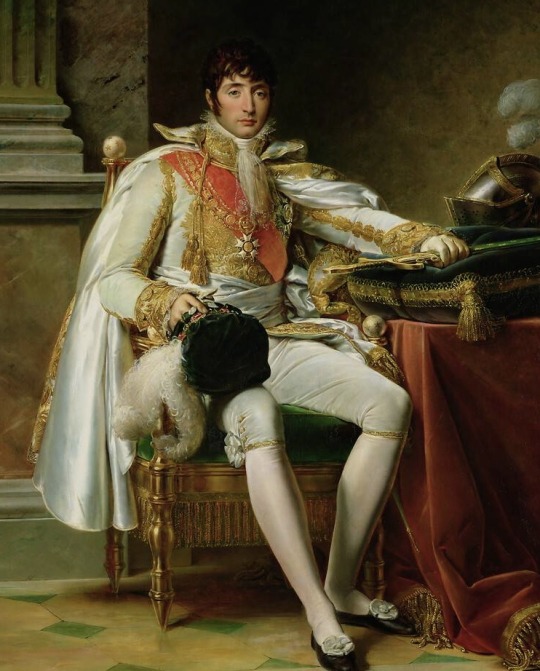
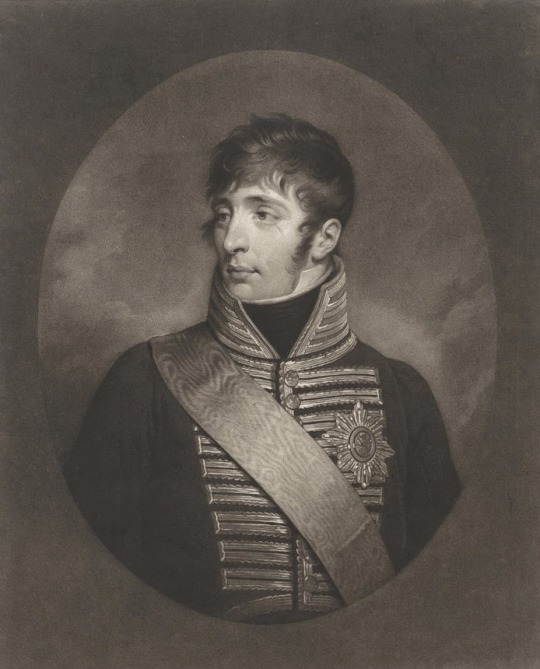
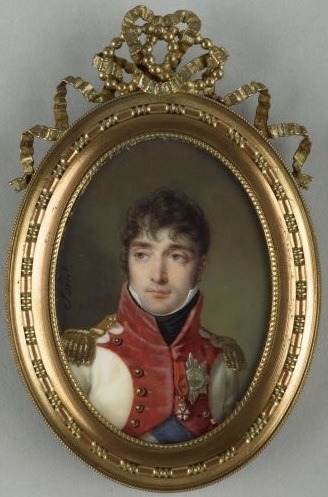



Louis Bonaparte appreciation post
#Louis#Louis Bonaparte#Napoleon’s brother#art#portrait#Napoleon#19th century#early 19th century#Napoleon’s family#first french empire#napoleonic era#french empire#napoleonic#french#France#men’s fashion#history of fashion#napoleon bonaparte#Napoleon’s brothers#1800s#1810s#1800s fashion#regency#the wallace collection#1800s art#paintings#neoclassical#rococo#baroque#neoclassicism
96 notes
·
View notes
Text
Last night, I had this dream that my family and I were all visiting this exhibition somewhere up North in America. Like I believe Massachusetts or something. It was in a large mansion with a shopping area and restaurants near. The area was two or three stories combined with landscapes. It was so pretty that I couldn’t describe it. Me and my relatives were all hanging around on the second floor for the whole night. I was scanning the shop and I found a shelf with a row of busts of Louis Bonaparte. The shelf was displaying items for Kings Day in the Netherlands. Since I was late upon doing things for that. This part reminded me that Kings Day is still alive.
I found a particularly new sculpture of Louis B. holding his cape over his head. I was so intrigued that I wanted to shoot good photos of that. But unfortunately everyone was rushing out the room so I couldn’t stay to look. My family was trying to move up the stairs and I begged for them to stay put so I can go back and shoot photos. As I was going back, I couldn’t find the shop anymore. I just ended up tricking my mind to believe that I am in that shop shooting the photos of Louis B.‘s busts. All angles!!!
This is something you’d expect to see in the Amsterdam Palace Museum. What I saw was both of these and another which was never made in real life.

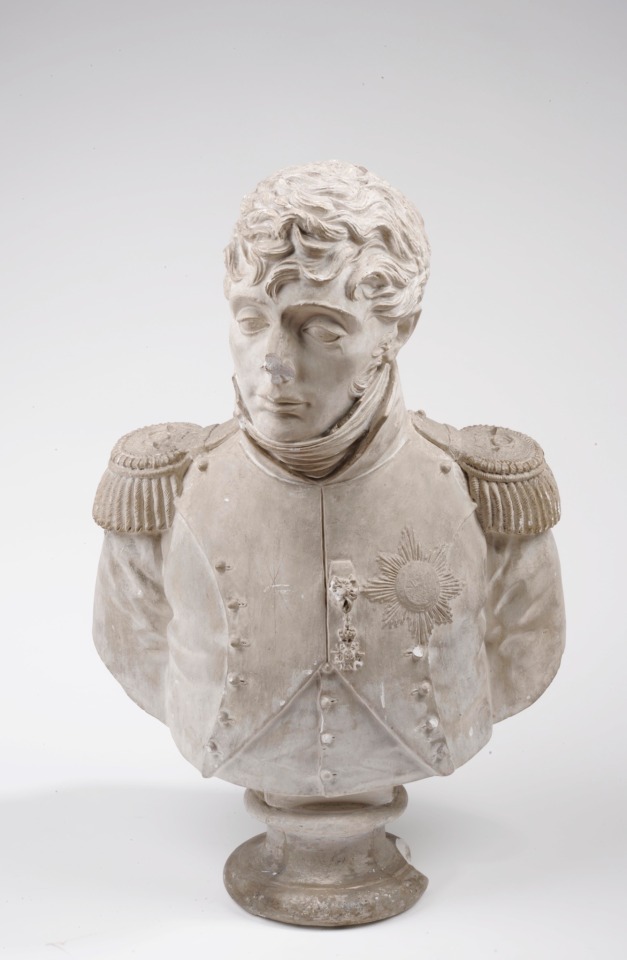
What stood out to me in my mind, when I was dreaming was the fact that both of these sculptures are very tacky looking in terms of material and appearance. Plaster busts are to me, kind of unflattering to look at, but it’s a cheaper option to sculpt if you’re trying to save that extra money so you can at least get an art piece. What annoys me about the plaster is that it’s chipping and fragile, even though it was used to model as a step. Kind of like art drafts. Honestly, if anyone has real knowledge upon sculpting and it’s processes, leave a comment below.
You can see the I also came across many sculptures of Louis in Holland that made me cringe and almost sorta vomit. If I didn’t have a liking to Louis, I will really vomit to seeing these nightmares of poor representation of our dear King of Holland. Why, fucking Why?
I was interested in figuring out why exactly these two busts draw my attention. When you study the faces, you’ll see a difference between the facial features. The brows were different. Makes me wonder what Louis Bonaparte’s face look like. The bottom or the top? That’s actually something I’d do today. Which one of Louis’s busts tell you what he looked like in real life? The bushy bootiful brows, or the on sleeke n’ slim?
And also here are the horrible gruesome stuff I’m about to show you.

Really???? 😟

Did you say he was a pancake face?

B*tch, how dare you? Ya’ll tryna shit on my babey.
#napoleon#napoleonic#louis bonaparte#lodewijknapoleon#king of Holland#king of hearts#he’s perfect#he’s got my heart
15 notes
·
View notes
Text
I thank my good and most excellent mother, the Cardinal, my brothers, Joseph, Lucien, Jerome, Pauline, Caroline, Julie, Hortense, Catarine, Eugene, for the interest they have continued to feel for me. I pardon Louis for the libel he published in 1820: it is replete with false assertions and falsified documents.
Napoleon leaving Louis out of the list of family members he thanks in his will, but including Caroline, is fascinating to me. I’d love to find out if she ever wrote to him on St Helena; it sounds like she must have, if he’s saying she’s one of the ones who “continued to feel interest” for him.
I doubt he ever wrote to her, though, and if he did, Metternich’s agents probably would’ve made sure she never received any letters from him anyway.
(The details of Napoleon’s will are here.)
49 notes
·
View notes
Text
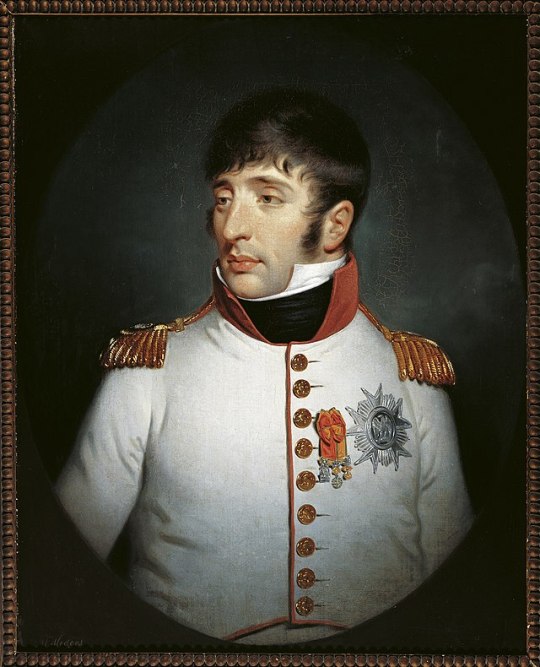
she's...... everything. problematic, obsessive, irrelevant to most.... we should all be more like Louis Napoleon Bonaparte.
2 notes
·
View notes